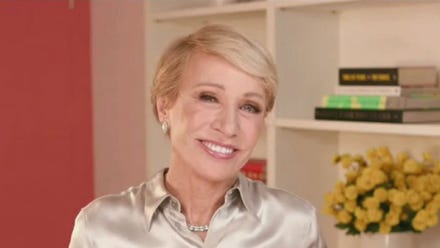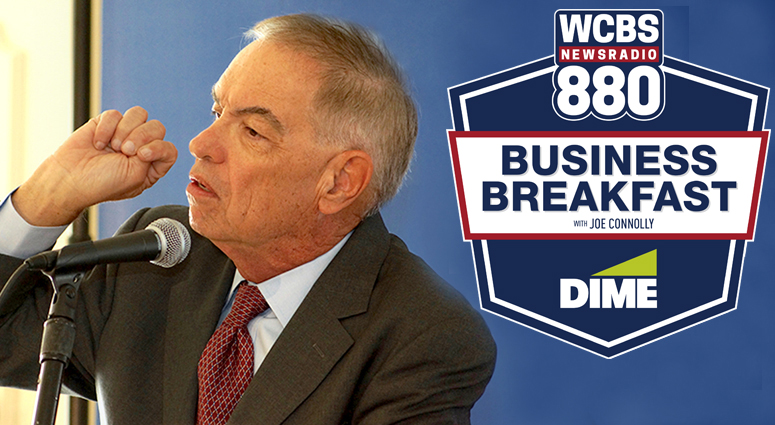
Neil A. Carousso produces NewsNation original “Kurt’s Country” – a celebration of country music and a slice of Americana with host Kurt Bardella.
The Latest
-
Fall 2021 WCBS Virtual Business Breakfast: Building Back Stronger
Presented by Dime Community Bank
Streaming Thursday, October 21, 2021 at 9 AM EDT
Submit your questions for our experts by tweeting @JoeConnollybiz and @WCBS880 using #WCBSBizBreakfast.
NEW YORK (WCBS 880) – What are you doing in your business that will allow you to survive the pandemic and emerge stronger?
The next WCBS Virtual Business Breakfast, presented by Dime Community Bank, will leave you with actionable advice on developing new products and services, and revamping your marketing and social media strategies. The time to act is now, and one way to learn how is to join us on Thursday, October 21 at 9 AM EDT at WCBS880.com.
Host Joe Connolly will lead a stimulating conversation with one of the country’s leading Internet entrepreneurs and investors, Kevin P. Ryan, and the Head of Shopify Spaces, Cody DeBacker, covering new revenue opportunities, sales transformations, digital marketing and expanding industries.
Kevin P. Ryan helped grow DoubleClick from a 20-person startup to a 1,5000-employee global leader that was acquired by Google for $3.1 billion in 2007. Today, as founder and CEO of AlleyCorp, Ryan funds and launches startups, including Nomad Health, Business Insider and Zola – providing mentorship to their leadership along the way.
Ryan will explain where the new growth opportunities are in today’s world. He will also speak to the challenges in hiring talent in a tight labor market and will reveal proven steps for building a winning team.
“We’re looking at consumer goods, we’re looking at B2B, we’re looking at software, we’re looking at healthcare, education… and a lot of (property) tech as well,” Ryan told Connolly ahead of the WCBS Virtual Business Breakfast.
Shopify has helped more than a million of the world’s most successful brands manage their e-commerce. Cody DeBacker will tell you how Shopify has put small and mid-size businesses in the position to succeed through digital sales growth.
Shopify also recently launched a creative space for entrepreneurs in SoHo. Shopify NY at 131 Greene Street offers hands-on business coaching, a photo studio for highly quality product photos, and a podcast studio. DeBacker will talk about how Shopify NY has started networking programs in the Big Apple.
“We’re ideally trying to provide all the tools that they need to get started,” said DeBacker. “We’re always ready to receive any and everyone who wants to learn more about how to make it in today’s world.”
In learning digital marketing and targeting of customers, businesses have found an entirely new revenue stream. On the WCBS Virtual Business Breakfast, you’ll see success stories and examples of thriving new businesses that have disrupted the marketplace.
The WCBS Virtual Business Breakfast programs have become blueprints for pandemic recovery since our long-running series pivoted online in March 2020. Join our business reporter Joe Connolly for this enlightening free virtual event on Thursday, October 21 at 9 AM EDT and participate by submitting questions using the form on this page.
MEET OUR EXPERTS:
Kevin P. Ryan
CEO and Founder, AlleyCorp
Photo credit: Kevin P. Ryan Kevin P. Ryan is one of the foremost Internet entrepreneurs in New York, having founded and is Chairman of several businesses, including AlleyCorp, Zola and Nomad Health. Previously he founded and was Chairman of MongoDB, Business Insider and GILT. Combined, these companies have raised more than $700 million in venture capital funding and currently employ almost 2,000 people. Previously, Kevin helped build DoubleClick from 1996 to 2005, first as President and later as CEO. He led DoubleClick’s growth from a 20-person startup to a publicly traded global leader with over 1,500 employees. In 2013, Kevin was named one of “The 100 Most Influential New Yorkers of the Past 25 Years” by the Observer.
Aside from his professional responsibilities, Kevin serves on the board of Mercy Corps, is Vice Chairman of The Partnership for New York City, is a member of the CFR Committee on Foreign Affairs, is on the Board of TECH:NYC and is Director Emeritus for Human Right Watch. He previously served on the boards of Yale Corporation, INSEAD, the Direct Marketing Association, The Ad Council, HotJobs and the advisory board of Doctors Without Borders. He holds a B.A. from Yale University and an M.B.A. from INSEAD graduate business school.
Cody DeBacker
Head of Spaces, Shopify
Photo credit: Cody DeBacker Cody DeBacker is the Head of Shopify Spaces. His projects and experiential activations have landed coverage in Forbes, The New York Times, Hypebeast, Complex, and hundreds of other publications around the world.
Cody’s current role is focused on leading Shopify’s physical spaces, and most recently, his team opened the first ever Shopify entrepreneurial community space in New York that features free one-on-one business support, commerce training workshops, and thought provoking panels and events with the industry’s top entrepreneurs and merchants.
He has also lead a team that participated in consumer conventions around the world such as Star Wars Celebration, NYCC, Complexcon, Hypefest, Family Style, and more. Cody is also the owner of 143 Worldwide, a DJ, and has been working in the fashion, trade show, and tech space for more than a decade.
The WCBS Business Breakfast series hosted by Joe Connolly is executive produced by Neil A. Carousso for WCBS-AM New York and Audacy, Inc.























